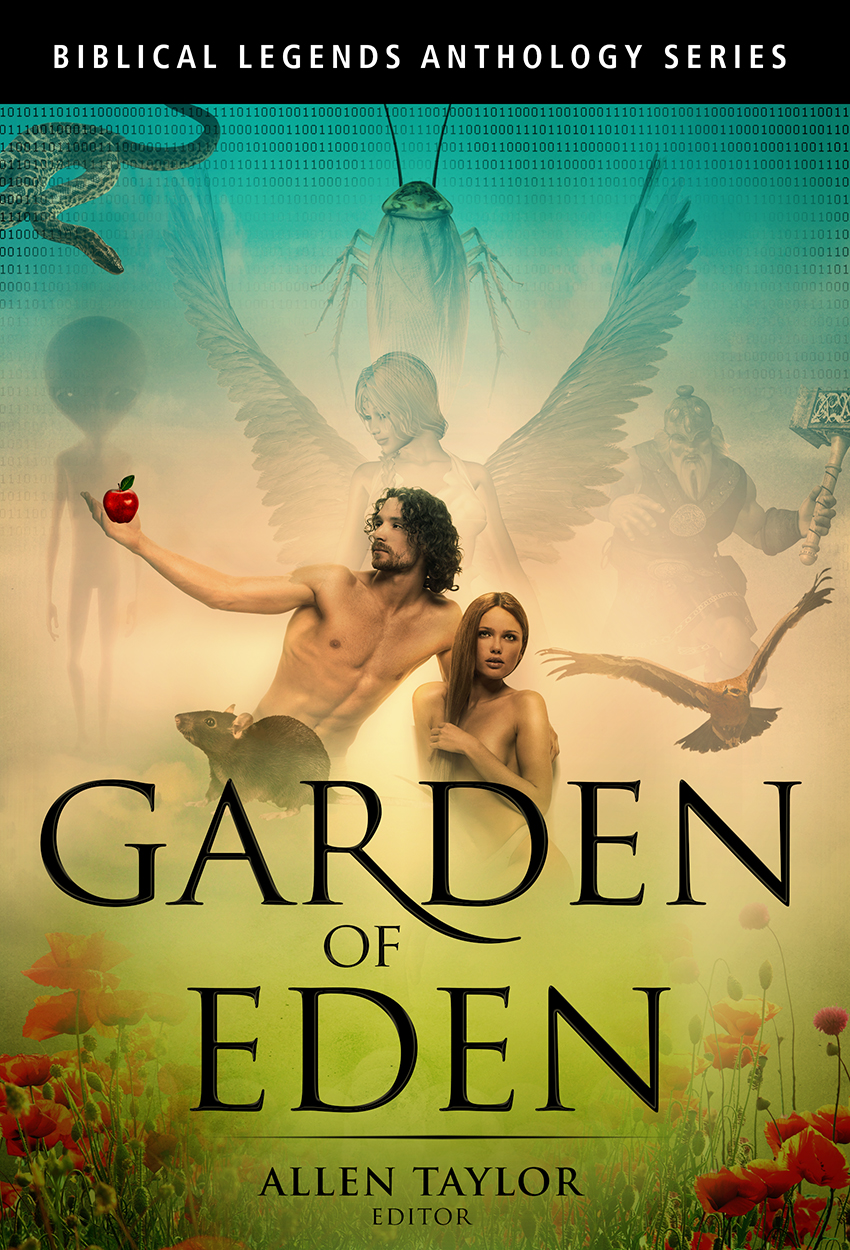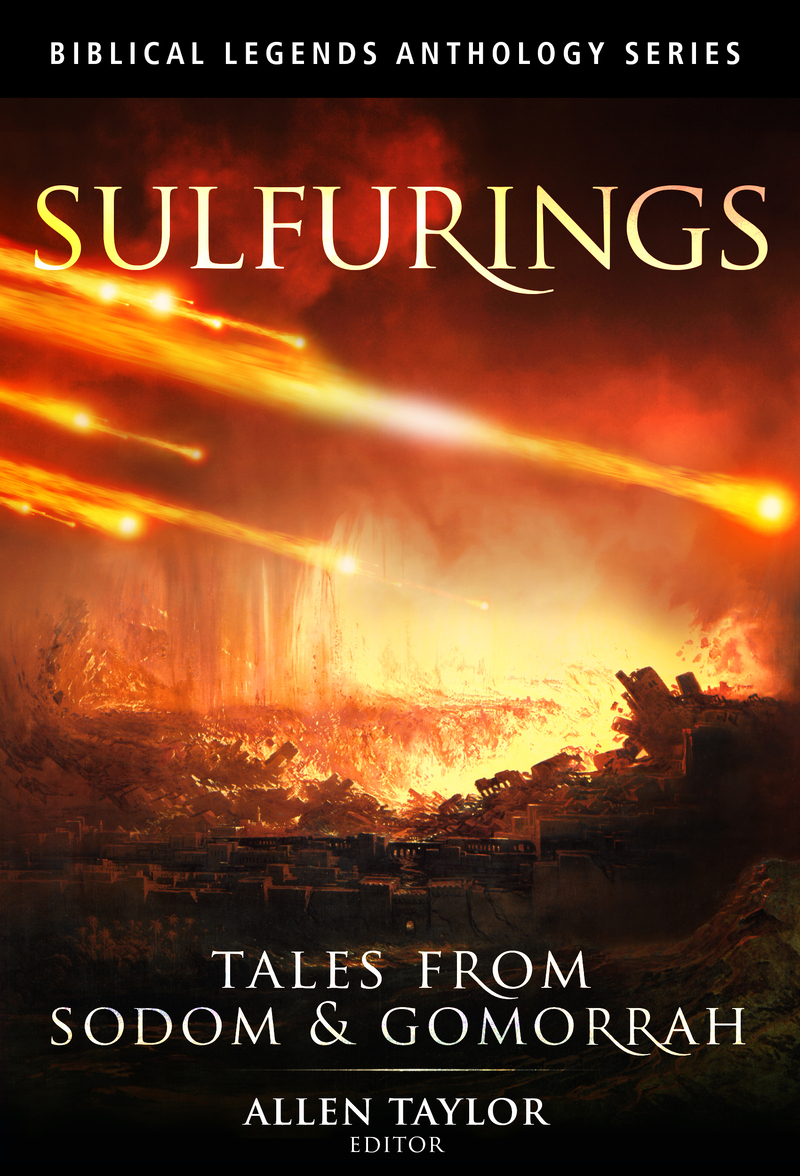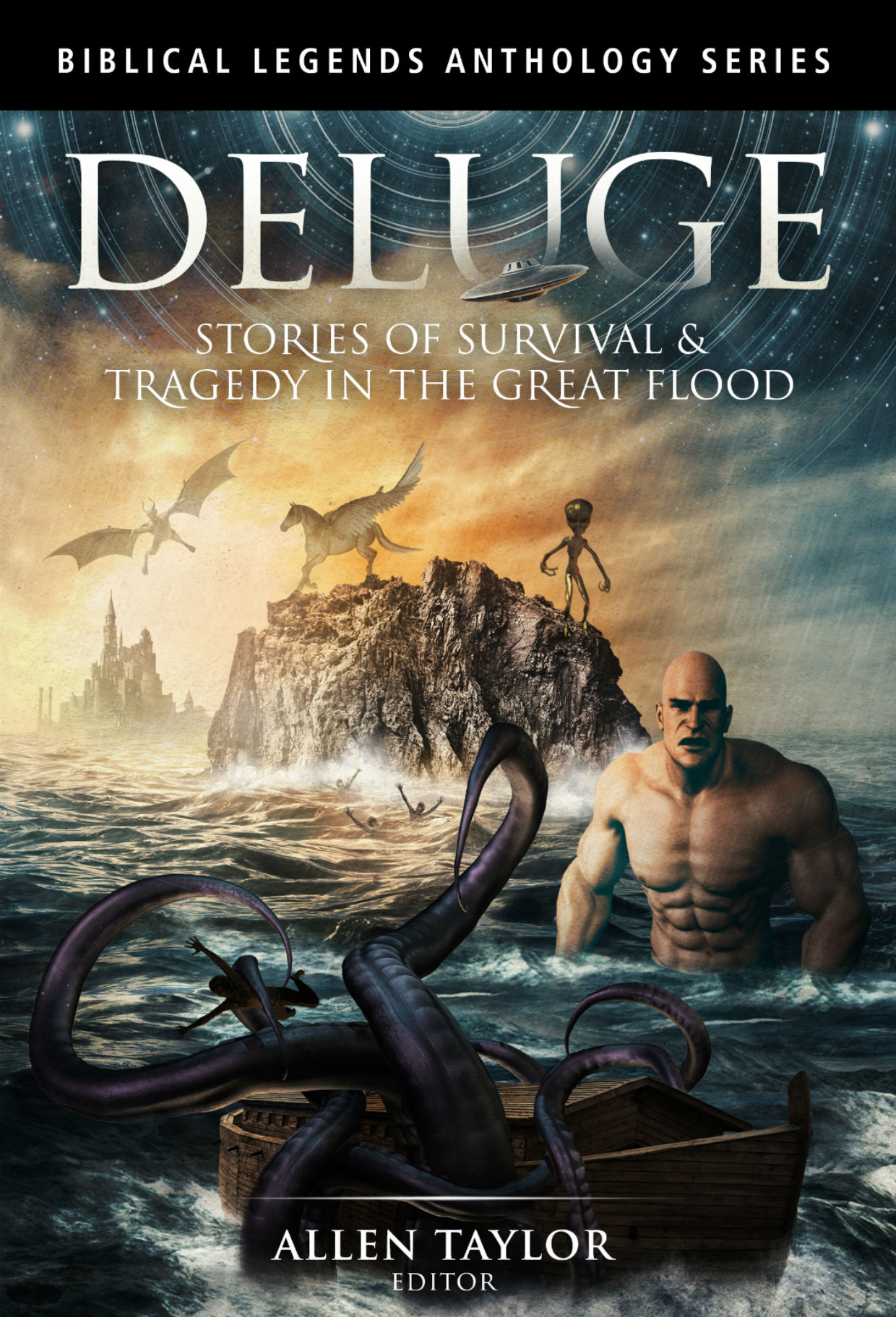The Biblical Legends Anthology Series



ISBN: 9798218033958
Mr. Allen Taylor did something bold. He decided to publish an anthology. If that in and of itself was not enough, he decided to publish stories about Biblical themes without the usual characters. The settings all feature moments of punishment: The Garden of Eden, Sodom and Gomorrah, and finally the Biblical Flood. These are the settings of expulsion, fire concomitant with brimstone, and water–respectively. Taylor chose to do this because “the stories (concerning the themes) lend themselves to a high degree of speculation.”
Mr. Taylor’s work features within the anthology, and somewhat forebodingly the introductions proclaim that he is simply a publisher and that he received many unexpected submissions but that his job was first and foremost to publish and not to act as a censor. Additional disclaimers are that any heavenly personages that are offended may take up their dispute with the proper authorities. It is a fine line to walk in this increasingly polarized age as no one seems to understand the concept of the ‘Freedom of the Press’. Voltaire wrote in Friends of Voltaire the following: “I disapprove of what you say, but I will defend to the death your right to say it.” It is hard to think of a stronger stance than this concerning the freedom of the press, and one that it appears Mr. Taylor would support.
The Biblical Legends Anthology Series might best be likened to a kind of Rorschach test about the Heavenly Father in the role of YHVH. If so, the submissions sent show, on balance, something about which to be troubled. True, most of these scenes lend themselves to the judgment of an angry God, but that is not the totality of what could be written about here. More than a few pieces seem to enjoy trying to push evil to the edge. Of course, what makes these more lurid descriptions “okay” is that the evil people are going to be killed in a rain of sulfur or be drowned in a pool of unforgiving water. There is more than a smattering of actually creative Science Fiction takes as well. One particularly original piece considered the Garden of Eden and God as a computer process. Another one concerned pieces of dust being named and a kind of sisterhood that had vague overtones of being a possible coven of women who are mad about being created. Still, later pieces feature Solomon trying to rescue something he knows should not be rescued, and still another ribald take narrates a breakdown of the whole affair in contemporary kinds of hipster-speak.
Stranger entries concern disembodied spirits (Maybe they are familiar spirits?) undergoing reincarnation loops and there is no shortage of Sodomites doing well, what Sodomites do. (Hint: It begins and ends in fire) There are pieces here that could easily become books on their own, and there are more than a few folks who are probably as of yet undiscovered talents capable of achieving something in the art and process that wears the title of “author”.
What was missing was the kind of love and respect the Heavenly Father typically represents. There are moments of this present, but more than a few have a defiant tone in the end because many pieces, it seems, are written from the perspective of evil. (Is it just being in character? One wonders.) Toward the end, there is even a tale about a kind of sympathetic ‘this is the VH1 Lucifer behind the scenes’ take where the reader is supposed to understand that Lucifer hates humanity only because they were ‘kinda mean to him’.
The poetry entries are fewer, but that is not surprising since what Mr. Taylor put together was not inherently a poetry anthology. No, instead he took the risk to open the field wide, and what he got might be a better look at where people who submit pieces to anthologies lie on the spectrum of “Deep Daddy issues.” If so, it is little wonder everything has been so dysfunctional in the past ten or so years.
What the Torah and New Testament make clear as the YHVH hates to destroy humanity. He tries every other avenue and has great patience before these consequences are enacted. No piece hinted at this deep sorrow. More than a few treated it like a flippant comedy. Sure, as a writer, one can assume poetic license. However, it is abundantly clear that YHVH is heartbroken by performing these acts even going so far as to repent Himself for having created man before destroying the world using The Flood.
Nobody can control what is submitted to an anthology, but are we, as humanity, really this disconnected from understanding not only the terror of these scenarios but the deep sadness of The One who created us due to these events? Sure, we can make entertaining stories based on that, but should we not also balance this other aspect? It does appear within this anthology, but not as much as one might expect–or perhaps as much as one might hope to expect.
Author’s Note: While writing this there was a Church in New London, Connecticut that was constructed in 1850 that simply fell. If we are a little sad about losing that kind of history, how much more so must the Creator be over losing large portions of His creation? Link
Thanks to Mr. Taylor for providing reviewer copies of his work! Subscribe to him here.[Send Lightning!]
